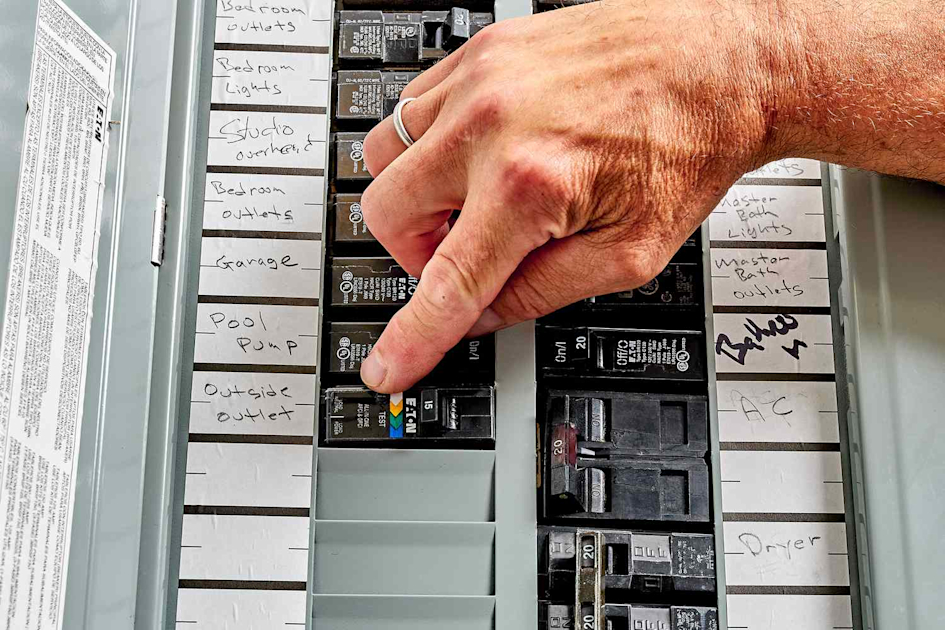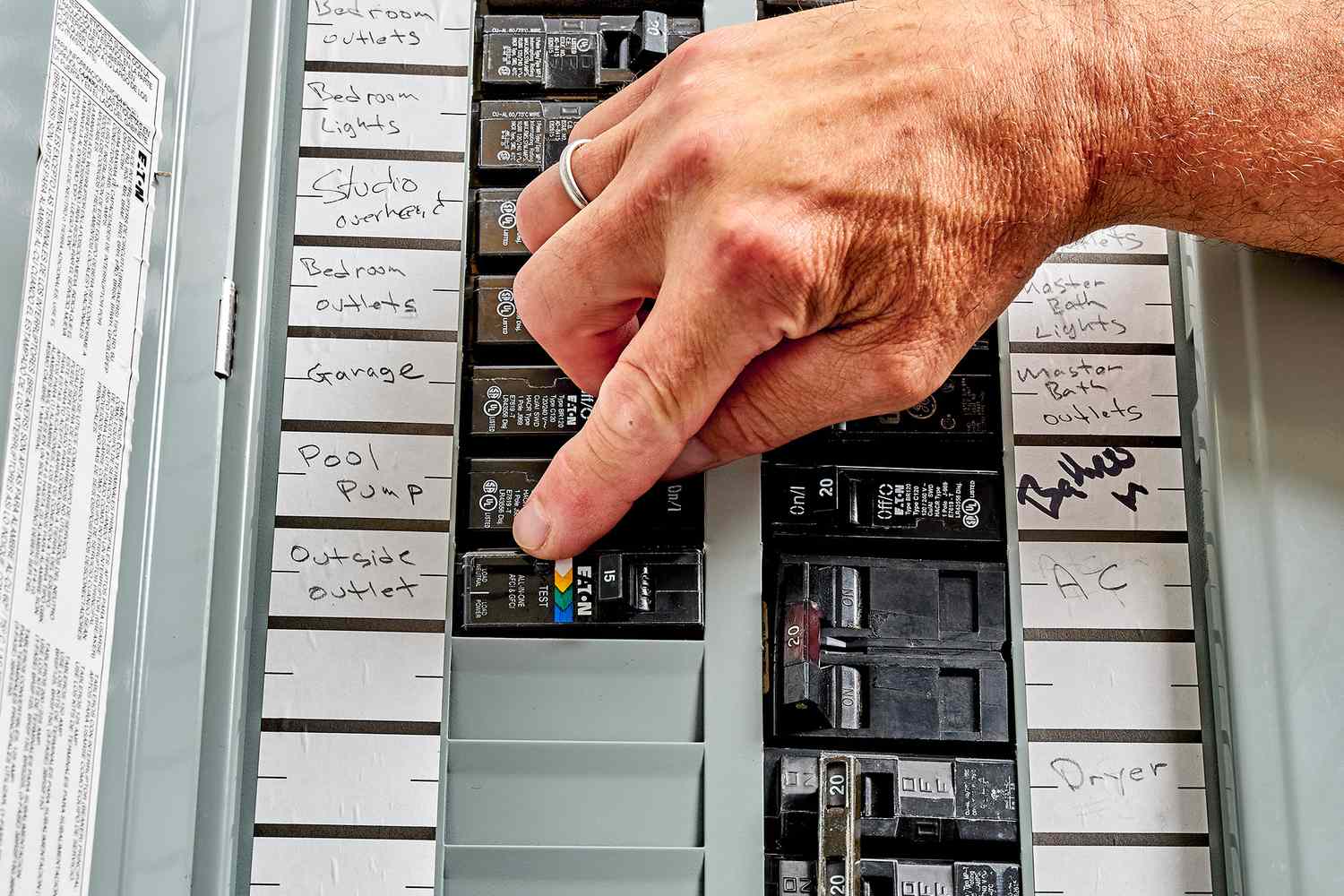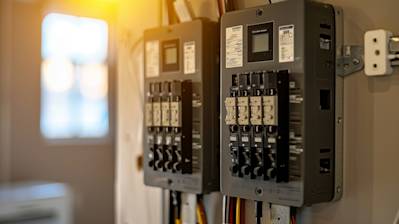In the realm of electrical safety, arc fault breakers are a crucial aspect that often goes unnoticed. Known for their essential role in preventing electrical fires by detecting potential hazards, arc fault breakers are the unsung heroes of our homes' electrical systems. In this article, we'll dive deep into the world of arc fault breakers, exploring their functions, types, features, and benefits.
Understanding the Basics of Arc Fault Breakers
Arc fault breakers, formally known as Arc Fault Circuit Interrupters (AFCIs), are advanced circuit breakers designed to protect electrical circuits from potentially dangerous arc faults. They detect both series and parallel arc faults and interrupt the power supply to prevent fire risks.
The breaker uses embedded microchips to differentiate between normal and hazardous arcing conditions. Once a danger is identified, the arc fault breaker trips, disconnecting the power supply and mitigating the risk of fire.
The Need for Arc Fault Breakers
Regular circuit breakers and fuses that adhere to traditional electrical setups provide protection from overloads and short circuits. However, these breakers are often unsuccessful in identifying arc faults, which can occur due to damaged wires or faulty insulation.
By detecting and addressing these issues, AFCIs play an essential role in protecting your home or business from electrical fires. In fact, since their introduction, the use of AFCIs in homes has saved many lives and prevented countless property damage incidents.
Different Types of Arc Fault Breakers
Branch/Feeder AFCIs: These are the most common type of AFCI, designed to protect the wiring from unwanted arcing conditions. They are installed in residential panel boxes to replace traditional circuit breakers.
Combination AFCIs: These AFCIs offer a higher level of protection by safeguarding not only the circuit and wiring but also power cords and appliances from arcing effects.
Outlet Circuit AFCIs: Located at the receptacle, these AFCIs provide protection to the circuit, power cords, and attached appliances from unwanted arc faults.
Features and Functionality of Arc Fault Breakers
Arc fault breakers come with several features that reflect their importance in electrical safety. They have a test button to check for correct operation. Once every month, you should press this button to trip the breaker, which will cut the power supply and indicate that the unit is working correctly.
Another distinct feature of AFCIs is their ability to distinguish between dangerous arcs and harmless arcs that naturally occur in electrical appliances. This selective action eliminates unnecessary power-cut incidents, ensuring smooth operation.
Installation and Consideration
Arc fault breakers typically replace standard circuit breakers in the consumer unit or main service panel of your home. It's always recommended that a licensed electrician install AFCIs because incorrect installation can lead to ineffective performance and can potentially cause electrical hazards.
When considering installing AFCIs, it’s notable that buildings with older wiring systems will add another layer of challenge due to the likelihood of pre-existing wear and tear or more extensive modifications needed to adapt to new arc fault breaker technologies.
The Benefits of Arc Fault Breakers
The protection that arc fault breakers provide against electrical fires is their most prominent advantage. By detecting dangerous arc faults that traditional circuit breakers typically overlook, AFCIs significantly reduce fire hazards related to home electrical systems.
Thanks to their intelligent technology, AFCIs also distinguish between harmless and dangerous arc faults, ensuring a seamless, uninterrupted power supply to your appliances and preventing unnecessary trip-outs.
Frequently Asked Questions about Arc Fault Breakers
Does Every Home Need Arc Fault Breakers?
Arc fault breakers have become the new standard in homes due to their inherent ability to prevent electrical fires. The National Electric Code has guidelines in place that require the installation of these breakers in all new residential constructions and during significant electrical upgrades.
Are Arc Fault Breakers Different from Ground Fault Circuit Interrupters?
Yes, there is a difference. While both are safety devices, they serve unique purposes. A ground fault circuit interrupter (GFCI) is designed to protect against electric shock, particularly in wet environments. On the other hand, an arc fault breaker is intended to help prevent electrical fires caused by harmful arcing faults in your home's wiring.
How Often Should I Test My Arc Fault Breakers?
Like any other safety device in your home, arc fault breakers require regular checking to ensure they are working correctly. You can do this by pressing the test button at least once a month. If the breaker doesn't trip immediately, it signifies a problem that requires professional attention.
How Do I Identify an Arc Fault Breaker in My Electrical Panel?
An arc fault breaker is distinguishable by the presence of a test button on the body of the breaker. Typically, the button would have a "T" or “TEST” written on it. Plus, modern arc fault breakers may also illustrate a combination of AFCI and GFCI indications.
What Does a Tripped Arc Fault Breaker Mean?
A tripped arc fault breaker means that it has potentially detected hazardous arcing. This could be in the form of a series arc, parallel arc, ground arc, or combination. You should identify and rectify the source of the problem, as consistent tripping could suggest a potential risk or an issue with the breaker itself.
Can I Replace a Standard Breaker With an Arc Fault Breaker?
Yes, you can. However, this job is best left to a professional, as it involves manipulating the electrical panel, an area with high risk. You have to ensure that your panel is affirmatively compatible with arc fault breakers before making the switch.
Why Is My Arc Fault Breaker Beeping?
Some newer models of arc fault circuit interrupters are designed with an alarm system that beeps when the breaker has tripped or detected an arc fault. If your breaker is beeping, first check to ensure it hasn't tripped. If it hasn't, the problem may be that it has detected a potential arc fault.
Can Arc Fault Breakers Prevent All Electrical Fires?
While arc fault breakers significantly reduce the risk of electrical fires in homes, they can't single-handedly prevent all electrical fires. Matters like poor installation, defective electrical appliances, failure to observe safety guidelines, among others can independently cause fires. Hence, although useful, arc fault breakers are part of a larger fire prevention strategy.
Pros of Arc Fault Breakers
Enhanced Protection
Arc Fault Circuit Interrupter (AFCI) breakers provide advanced protection by immediately cutting the electrical supply when an arc fault is detected. An arc fault can cause severe fire hazards, which are not usually detected by traditional circuit breakers.
Fire Prevention
One of the key merits of arc fault breakers is that they help in preventing fires. Instead of only tripping during an overload or short circuit like traditional breakers, the technology in arc fault breakers allows them to also trip when dangerous arcing conditions occur. This helps to prevent deadly fires that can damage your property.
Detecting Arc Faults
Arc fault breakers are designed with complex technology to detect an array of dangerous arc faults that conventional breakers can miss. Even when the arcing isn’t constant, arc fault breakers can still catch it and react instantly.
Extended Circuit Coverage
Arc fault breakers watch over the entire circuit they are connected to. If you've wired it to safeguard the electrical circuits of your living room, for instance, then it will cover all the plugs, outlets, and linked electrical devices in that area. This is more efficient than a standard outlet-based AFCI which only covers one or a few outlets.
Thorough Code Compliance
In many places, updating older homes to include arc fault breakers is legally required. With an AFCI breaker, homeowners can ensure their homes meet National Electrical Code requirements. This can be especially beneficial when selling a home, as it assures potential buyers that the residence is safe and up-to-date.
Cons of Arc Fault Breakers
Higher Initial Costs
AFCI breakers are more complex and thus, more expensive than standard circuit breakers. Installation also requires a professional electrician, increasing initial costs even further.
Replacement Cost
Replacing an arc fault breaker is also costlier than a conventional circuit breaker. If you are increasing the number of AFCIs in your home, the cumulative cost could be considerable.
Fewer DIY Opportunities
Because of their complex nature, troubleshooting and fixing AFCI breakers is usually beyond the average homeowner's skill and instead requires a knowledgeable electrician.
False Tripping
A concern with AFCI breakers is the occurrence of false or nuisance tripping, often as a result of harmless arcs — such as those produced by a vacuum cleaner or blender. While most modern AFCIs are better at distinguishing between hazardous and non-hazardous arcs, it can still be an annoyance for some homeowners.
Compatibility Limitations
Not all electrical panels or old wiring systems are compatible with AFCI breakers, which may limit their use in older homes. While GFCI breakers serve a similar purpose and are often compatible with older systems, they don't offer the same level of fire protection that AFCI breakers can.
Increased Complexity
Unlike their simpler counterparts, arc fault breakers require more knowledge and skill to install, troubleshoot, and maintain correctly. Their increased sophistication may demand a higher level of understanding for zeroing on potential faults, making it difficult for homeowners to fully grasp without professional assistance.
Stability Questions
Lastly, the long-term stability and reliability of AFCI breakers have been called into question by some critics. They argue that these devices are too often prone to failure because of their complexity. Others argue that the devices are still relatively new and still have a long way to go in terms of evolving their technology and refining their performance.
Summary
So, if you're thinking about the safety components in your home, don't overlook arc fault breakers. They do the job of preventing dangerous electrical arcs that could trigger a fire in your property, making them a vital aspect of any modern electrical system. Even if they may seem confusing or complicated in the first glance, they’ve got clear functionality and are easy to handle with a little bit of knowledge and understanding.
Speaking of their role, arc fault breakers are particularly vital because they distinguish between harmless arcs that occur in the normal operation of electrical devices and potentially hazardous arcs which can occur, for example, in a lamp cord punctured by a nail. From an everyday perspective, they potentially save us from a lot of unanticipated headaches and offer peace of mind knowing we're protected from unseen electrical mishaps.
Moreover, in the bigger picture, arc fault breakers play a massive role in modernizing electrical safety standards. With the increasing reliance on electrical devices in our home, and the many hazards that this could foreseeably present, these breakers work as important guards cutting down on electrical fires risk. At the end of the day, they help make your home a much safer place to live and for anyone who values safety, that's a pretty big deal.
About Sagan Electric
Sagan Electric is a local, friendly electric service company proudly serving Sacramento, CA and its surrounding areas. Born and bred in Sacramento, we’re all about providing top-quality electrical services to our neighbors. We maintain our strong reputation by continuously delivering expert, reliable, and efficient services with a smile. Whether you're in need of a simple repair or a complete electrical system overhaul, you can trust our experienced, licensed electricians to get the job done right. We're not just your service providers, we're your neighbors! So, you'll always get that extra touch of personal care when you choose us. With Sagan Electric, your safety and satisfaction are always our top priority.
Tags: arc fault protection, electrical safety, home inspections,








